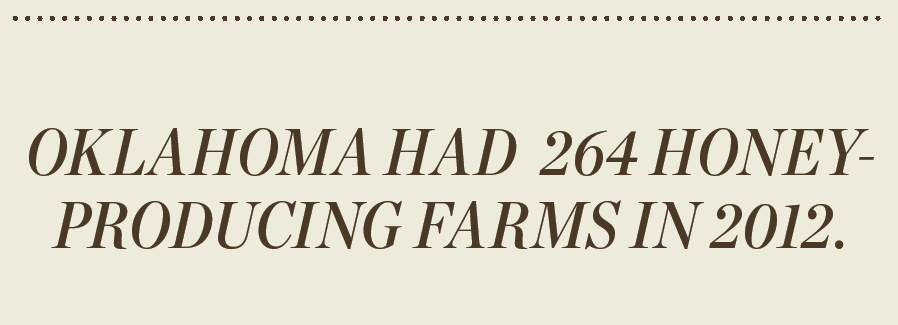Home > Oklahoma > Oklahoma Crops & Livestock > What’s the Buzz About Protecting Oklahoma Pollinators?
What’s the Buzz About Protecting Oklahoma Pollinators?
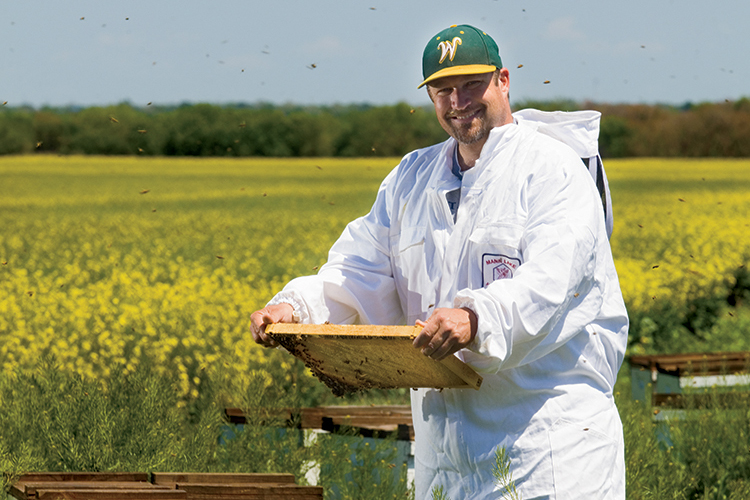
Honeybees have a reputation as annoying little pests, buzzing around our picnics as uninvited guests. But without honeybees, we wouldn’t be able to enjoy the majority of offerings on that same picnic table.
Honeybees are nature’s most important pollinators, visiting up to 5,000 flowers a day. Almost all fruit crops require pollination to ensure the fruit sets. Without it, many trees and plants can’t produce. And while the insects are extremely important for the viability of Oklahoma’s agriculture industry, they also produce honey – another increasingly popular product.
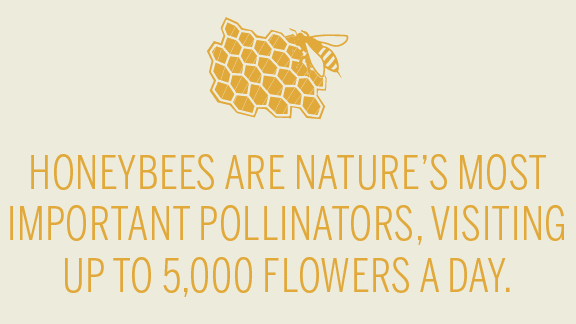
Vital For Growth
Kevin Andrews of Andrews Honey Bees is familiar with all aspects of the honey industry, as his family-owned and operated company produces and sells raw natural honey and beeswax, and also offers pollination and honey extraction services to farmers across the state and beyond.
“We began as a hobbyist 12 years ago in southern California, then started beekeeping commercially about two years ago, after a friend had moved to Oklahoma and told us about the great opportunities here,” Andrews says.
After doing some research, they found they could benefit the state’s (and country’s) farmers by offering pollination services, where they bring their bees to farms to help pollinate the crops. Andrews even sends bees back to his home state of California, helping to pollinate the 800,000 acres of almond trees there.
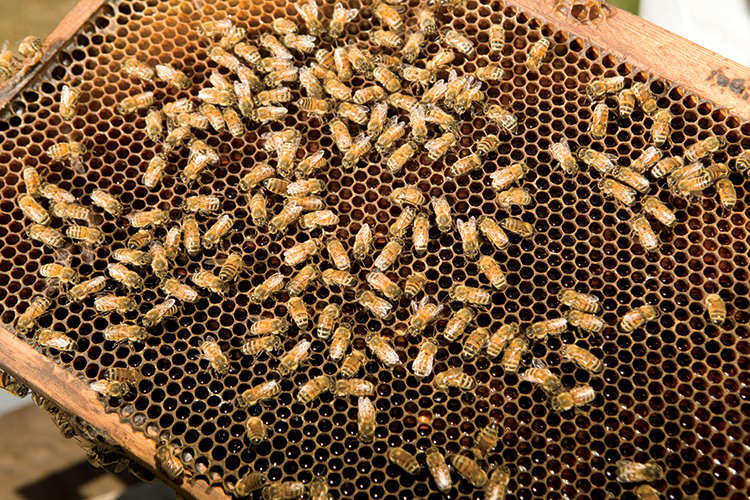
“Certain crops, like winter canola, are self-pollinating, but almond trees and other crops must have honeybees to pollinate and thrive,” Andrews says. “Our pollination services help increase yield for the farmers. And sometimes, even with crops like canola, the bees can be used to make larger pods.”
Andrews says that in 2014 alone, they helped pollinate about 160,000 acres of canola, and had just short of 40,000 hives. They also produce several varieties of honey, including canola, alfalfa, wildflower and orange blossom.
“With raw honey, each has a distinct taste, depending on what the bees are pollinating,” he says.
![Oklahoma Honey [INFOGRAPHIC]](https://eadn-wc01-4177395.nxedge.io/wp-content/uploads/2020/05/Screen-Shot-2015-07-16-at-5.00.35-PM.png)
With the rising interest in local food, Andrews says he’s seen a tremendous increase in the popularity of honey. They sell at several farmers markets, and have seen a great enthusiasm from people with allergies. The raw honey they provide has never been heated or filtered, which keeps the beneficial particles of pollen and beeswax, plus contains natural amounts of vitamins, minerals and enzymes from the honeybee.
According to the 2012 Census of Agriculture, Oklahoma had 264 honey-producing farms, including Andrews Honey Bees. They collected a combined total of 86,894 pounds of honey, with a value of $256,000.
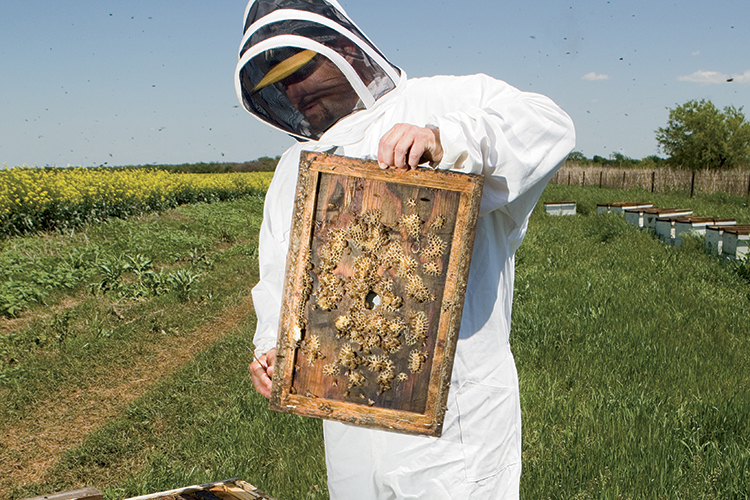
Protecting The Pollinators
To keep Oklahoma’s honeybee industry strong and emphasize its importance to agriculture, a bill was recently passed by the legislature that will develop a Pollinator Plan. The bill, SB 229, was authored by Sen. Ron Justice (a former county extension agent), and directs the Oklahoma Department of Agriculture, Food and Forestry to develop a plan that will promote the health of and mitigate risks to pollinators, including honeybees. Signed into law by the governor, the bill brings interested groups together to form a plan on how to farm without hurting honeybees and other pollinators.
“I see this as a proactive law that helps protect Oklahoma’s agriculture industry,” Justice says. “It’s about protecting crop production for our state’s economy. It’s not just about farmers and producers, but for everyone who eats.”
